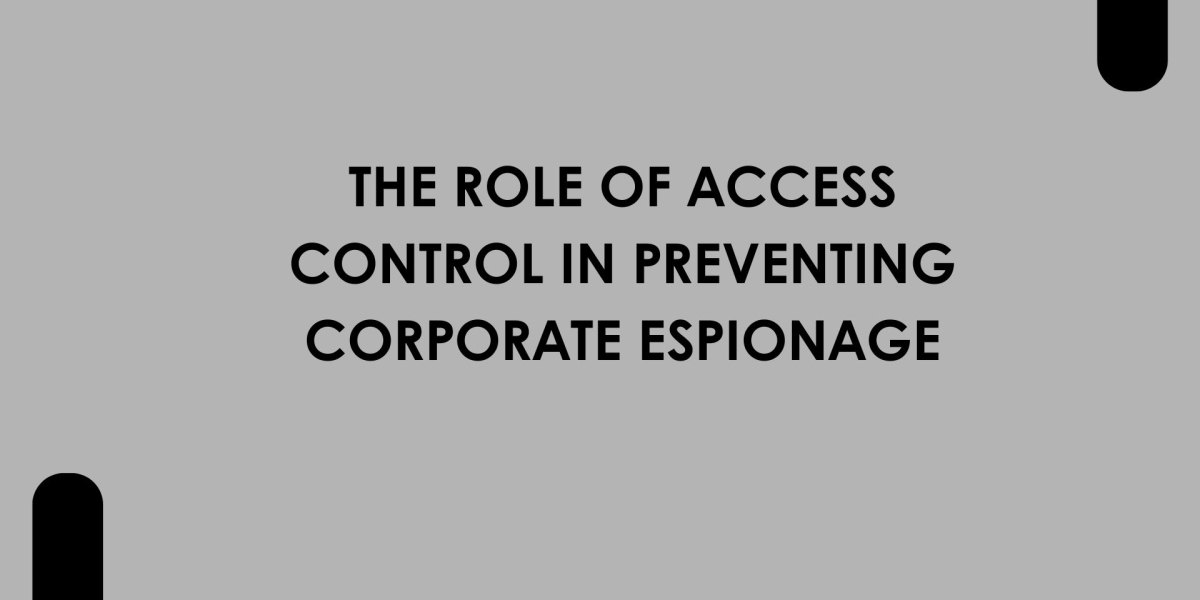In today’s hyper-competitive business landscape, information is one of the most valuable assets a company holds. Proprietary technology, customer databases, product roadmaps, and financial records can all be targets for corporate espionage. Whether it comes from external hackers, internal bad actors, or disgruntled employees, the theft of sensitive information can cause irreparable damage. One of the most effective strategies for protecting these assets is implementing a robust Access Control System.
XTEN-AV empowers AV designers and security professionals to create intelligent, secure environments. In this blog, we will explore how access control plays a vital role in protecting intellectual property, limiting data exposure, and ultimately preventing corporate espionage.
What Is Corporate Espionage?
Corporate espionage is the act of stealing trade secrets or sensitive company data to gain a competitive edge. It may involve:
Unauthorized access to secure areas
Theft of physical documents or hardware
Digital infiltration using phishing or malware
Insider threats from employees or contractors
The goal is typically to sell, leak, or exploit confidential information. Organizations in industries like technology, finance, pharmaceuticals, manufacturing, and defense are especially vulnerable.
While cybersecurity solutions defend against digital threats, access control focuses on the physical aspect—making sure only the right people can reach sensitive areas.
Understanding the Risk from Within
External threats are real, but insiders pose a higher risk because they already have some level of trust and access. Employees, contractors, and even cleaning crews can become vectors for data theft. Common insider espionage scenarios include:
Copying files from secure servers
Accessing restricted labs or R&D zones
Sneaking into executive offices
Taking photos of confidential presentations
Preventing this starts with a properly designed and enforced access control strategy.
How Access Control Systems Prevent Corporate Espionage
A modern Access Control System does much more than lock doors. It creates a structured, traceable, and enforceable system of permissions. Let’s look at the specific ways access control helps prevent corporate espionage:
1. Restricting Access to Sensitive Areas
Limiting who can enter critical departments such as research, IT, finance, or executive suites is the first layer of defense. Role-based access ensures that employees only have access to areas they need.
Engineers should not enter accounting rooms
Administrative staff should not access server rooms
Temporary workers should have time-limited access
XTEN-AV allows you to design access zones and permissions visually, helping integrators map out secure boundaries effectively.
2. Real-Time Monitoring and Alerts
Access control systems track every entry and exit, providing real-time logs and alerts for unusual behavior.
Repeated attempts to access a restricted room
After-hours access without authorization
Unauthorized badge usage or badge sharing
Security teams can be notified immediately, reducing response time and allowing swift intervention.
3. Two-Factor and Biometric Authentication
For high-security environments, basic badge or PIN access is not enough. Adding a second layer of authentication significantly improves security.
Fingerprint or facial recognition for lab entry
Mobile credentials paired with facial ID
PIN codes combined with access cards
These methods make it much harder for someone to impersonate another employee or use stolen credentials.
4. Visitor Management Integration
Corporate spies may enter as guests or vendors. Access control systems with visitor management integration limit what areas these individuals can access.
Pre-approval of guest credentials
Escort-required zones
Expired badges that auto-deactivate
Tracking visitors ensures there is no unmonitored movement inside the building.
5. Time-Based Access Restrictions
Even trusted employees do not need 24/7 access. Time-based restrictions reduce risk by limiting access to working hours.
No after-hours lab access unless pre-approved
Weekend restrictions for sensitive areas
Temporary credentials for project-specific teams
When employees cannot access areas during odd hours, the chances of data theft are drastically reduced.
6. Audit Trails and Investigation Support
If a security breach does occur, access logs can provide a timeline of events.
Who accessed the room
When they entered and exited
If doors were forced or left open
This data can be crucial in identifying the source of a breach and taking appropriate legal or disciplinary action.
Building a Proactive Security Culture
Technology is critical, but people play an equally important role in preventing corporate espionage. Your access control strategy should include:
Training employees on security protocols
Encouraging the reporting of suspicious activity
Regular policy reviews and updates
Periodic audits of access permissions
A security-first culture, supported by access control, helps ensure that your organization remains vigilant against espionage threats.
Designing Smart Access Systems with XTEN-AV
XTEN-AV enables integrators to design intelligent, layered security systems. Key features include:
Easy zone-based layout planning
Integration mapping with video surveillance or alarm systems
Real-time monitoring visuals and alert flows
Scalable plans for multi-site deployments
Detailed documentation for compliance audits
Using XTEN-AV, security professionals can visualize every entry point, credential type, and control panel to ensure no weak spots exist.
Common Access Control Mistakes That Enable Espionage
Even with a system in place, gaps in planning or enforcement can create vulnerabilities. Avoid these common mistakes:
Sharing access cards or using generic credentials
Failure to revoke access for ex-employees
Not updating permissions after department transfers
No monitoring of failed access attempts
Using outdated, easy-to-copy keycards
Each of these issues creates an opportunity for sensitive data to fall into the wrong hands.
Conclusion
Corporate espionage is a growing threat, but it can be mitigated with the right tools and strategy. A robust Access Control System serves as a vital defense layer that protects physical spaces where critical data resides.
By controlling, monitoring, and limiting access to sensitive areas, you reduce the risk of insider threats and unauthorized intrusions. With the power of XTEN-AV, access control can be thoughtfully designed to prevent gaps and adapt as your security needs evolve.
In a world where intellectual property is gold, securing your business starts at the door. Preventing corporate espionage is not just about IT—it begins with access.
Read more: https://bence.net/read-blog/35104








